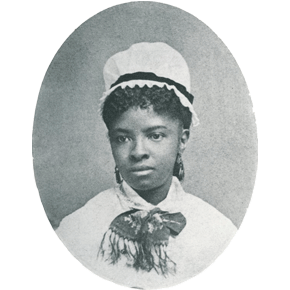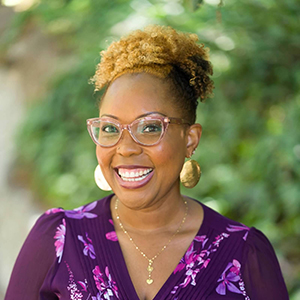Why More Black Nurses Are Needed in Healthcare



While Black Americans represent 13% of the population, only 7.8% of nurses are Black, according to the federal Health Resources and Services Administration. This gap is narrower than it used to be, but there continues to be a strong need for more Black nurses.
“There are benefits for both the health system and consumer side when you have a diverse population of people who are providing health to the community,” says Tiffany M. Montgomery, an assistant professor of nursing at Temple University.
In this Article
The History of Black Nursing | Black Nursing Today | The Future of Black Nursing | Resources for Black Nursing
The Beginnings of Black Nursing
Black nurses can be found throughout U.S. history, but it took perseverance in the face of long odds to obtain an education and then recognition as nurses.
Black nurses faced racism on multiple fronts. A limited number of schools were willing to accept them as students, professional nursing organizations rejected them as nurses, and the U.S. Army and Navy banned them from working in the armed services.
Black nurses can be found throughout U.S. history, but it took perseverance for them in the face of the long odds of racism to obtain an education and recognition as nurses.
Black nurses steadily fought to gain ground and pave the way for more nurses of color, but it took decades to gain broad acceptance.
Who was the first Black Nurse? Meet her and other historic figures.

Mary Eliza Mahoney (pictured): In 1879, Mahoney became the first Black American to earn a professional nursing license. She would spend a significant portion of her life dedicated to increasing access to nursing education for people of color and fighting racial discrimination in the field.
Estelle Massey Osbourne: In 1931, Osbourne became the first Black American to earn a master’s degree in nursing. During World War II, she worked to change discriminatory policies against Black nurses. Because of her work, more nursing schools began to admit Black students, and the Army and Navy dropped their bans on Black nurses.
Hazel Johnson-Brown: Johnson-Brown became the first Black female brigadier general in the U.S. Army. When she assumed her post in 1979, she was in charge of the 7,000 nurses in the Army Nurse Corps. She later served as director of the Walter Reed Army Institute of Nursing.
Black Nursing Today
Black Americans’ relationship with healthcare is a complicated one. Historic examples of discrimination and unethical experimentation, such as the Tuskegee Syphilis Study and others that came at the expense of Black women’s bodies, have created a feeling of mistrust for many, says Montgomery.
In fact, more than one-third of Black people have reported feeling discriminated against while receiving medical care according to a 2017 poll by the Robert Wood Johnson Foundation, a philanthropic organization dedicated to addressing health issues.
“We finally are just getting around to receiving an apology, but people have long memories,” Montgomery says. “Our community doesn’t trust healthcare providers, and so we must have healthcare professionals who are a part of the communities that distrust the healthcare system.”
A study by the non-profit health advocacy group Families USA says that people who have healthcare professionals from the same racial or ethnic background are more likely to report care satisfaction.
“You learn that some of the biases that you have against people in these communities have no basis,” Montgomery says. “So, you become a better practitioner yourself.”
People who have healthcare professionals from the same racial or ethnic background are more likely to report care satisfaction, according to a study.
But there are challenges for Black people who want to become nurses. Factors like cultural alienation and discrimination can prevent Black students from graduating with college degrees. As a nursing student and as an educator, Montgomery says she’s “seen white students treated with privilege and Black or other students of color discriminated against.”
The Future of Black Nursing
Black nurses and educators are needed to provide the healthcare Black communities call for. So, what can be done to ensure that prospective Black nursing students complete their degrees?
“One of the biggest challenges for Black nursing students is the lack of Black faculty,” she says.
Today, 11% of students pursuing a bachelor’s degree in nursing (BSN) are black and 8.7% of nursing faculty are Black, according to the American Association of Colleges of Nursing.
Black faculty members can serve as role models for Black students—and also educate other students about the social issues surrounding health disparities within the Black community.
But it’s not always easy to hire and retain faculty of color. Montgomery suggests this is because being an educator often pays less than clinical nursing—and comes with a higher workload. Low retention rates might stem from cultural biases of white faculty and feelings of isolation among Black faculty.
“As we can increase diversity, I think that students will feel more comfortable,” says Montgomery. “We can recruit more students to nursing, and we can retain them.”
To do this, she says, Black students must feel like they are part of a community.
She recommends that prospective Black nursing students look not only at a school’s pass rates as a measure of the quality of their nursing program but also at a school’s:
- Black faculty and staff
- Black student unions
- Black nursing auxiliary groups
- Organizations that are geared toward the student’s interests
Another way to retain students and ultimately increase the number of Black nurses is by providing an educational environment where they fit in and are needed.
“Nursing school is hard enough on its own,” says Montgomery. “We don’t need to do anything to make it more difficult than it already is, and so creating an environment where people can just be themselves is the best way to get successful students.”
Resources for Black Nurses
Strong community support can offer encouragement and resources to aspiring Black nurses. Here are some resources:
Organizations for Black nurses
- National Black Nurses Association
- Black Nurses Rock
- National Coalition of Ethnic Minority Nurse Associations
Podcasts for Black nurses
Black nurses on social media
- Nurse Nacole shares her experiences as an advanced practice registered nurse (APRN) specializing in critical care.
- Nurse Boss Essentials Nurse Vicky shares study materials on Instagram and also sells study kits.
- The Nurse Nook Alexis Nicole, a neonatal intensive care nurse, shares tips for nursing school and working as an RN.
Scholarships for Black nursing students
- NBNA scholarships: There are multiple scholarships available ranging from $1,000 to $15,000.
- M. Elizabeth Carnegie African American Scholarship: This scholarship is designated for Black nurses enrolled in a doctoral program.
- Black Nurses Rock Scholarship: Offered by Black Nurses Rock. Current Black nursing students can apply for this scholarship, which awards varying amounts of financial aid.
With professional insight from:

Assistant Professor of Nursing, Temple University




